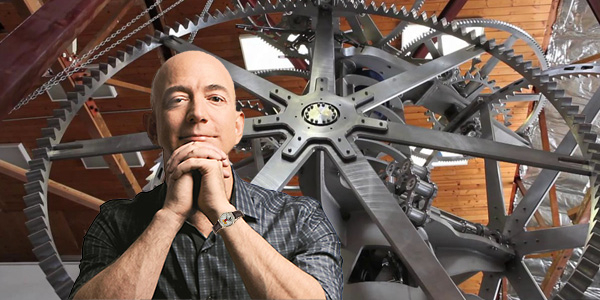In a historic shift, The Washington Post has decided not to endorse any presidential candidate for the first time in 36 years. This decision has caused a stir among readers, especially its liberal subscribers, many of whom have threatened to cancel their subscriptions in protest. CEO Will Lewis announced this move, describing it as a return to the paper's early stance on neutrality. However, this has sparked questions over the influence of ownership, especially regarding Amazon founder Jeff Bezos, who owns the publication.

A Break in Tradition
This new policy signifies a stark departure from the Post's traditional support for Democratic candidates, a practice dating back to 1976. The last time the paper withheld an endorsement was in 1988 when it opted not to back either Michael Dukakis or George H.W. Bush. For decades since, the Washington Post's endorsements have been predictably Democratic, making this reversal, just 11 days before a major election, both surprising and impactful.
Internal Decision-Making and Ownership Influence
Lewis framed the decision as an attempt to create "independent space," separating journalism from political endorsements. However, other sources, including NPR, have hinted at different motivations. Reports suggest David Shipley, the editorial page editor, initially approved a draft endorsement for Kamala Harris. Allegedly, this endorsement was reviewed by Bezos before a final decision to withhold it was made. The Post's internal reports have raised concerns, implying Bezos may have had significant sway over the decision.
Staff Reactions and Guild Outrage
This shift has left Washington Post staff divided and has drawn criticism from the Washington Post Guild, the union representing many of its journalists. In a statement, the Guild condemned the decision, arguing that it risks undermining the trust of its readership during a critical election period. Reporters have voiced frustration, with senior political correspondent Ashley Parker referring to it as an unexpected "October Surprise." In a meeting with staff, Shipley reportedly explained his choice as a commitment to journalistic independence, a sentiment met with skepticism by employees and union members.
Political Figures Voice Disapproval
Prominent political figures have also weighed in. Senator Bernie Sanders of Vermont publicly criticized the decision on social media platform X, claiming it reflected corporate control over media and insinuating that Bezos may have made the decision to protect Amazon's government contracts. Sanders pointed to this action as an example of "oligarchic interference," arguing that the neutrality stance may undermine democracy.
Resignations and Broader Media Implications
The fallout from the endorsement decision has already seen resignations. Robert Kagan, a conservative commentator and critic of Donald Trump, stepped down from his role on the editorial board, citing disappointment in the Post's neutrality stance. His resignation highlights the internal rifts and growing dissatisfaction within the publication. Similarly, the Los Angeles Times, owned by Dr. Patrick Soon-Shiong, also announced a decision to withhold a presidential endorsement this year. Their editorial page editor recently resigned, allegedly due to conflicts over the endorsement.
Impacts on the Post's Legacy
Martin Baron, former executive editor of The Washington Post, denounced the decision, calling it "cowardice" and warning of potential pressures on media ownership by corporate interests. He underscored that such moves could jeopardize journalistic independence and weaken democratic integrity, stating, "History will mark this as a disturbing chapter of spinelessness."
CEO Lewis defended the decision as aligning with values of integrity and independence, underscoring what he described as a commitment to "character and courage in service to the American ethic."
This unprecedented move has added another layer to ongoing debates around media independence, ownership influence, and the responsibilities of the press in upholding democratic principles.








